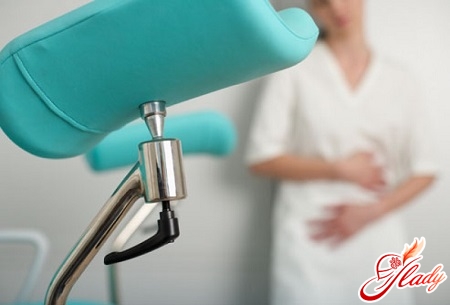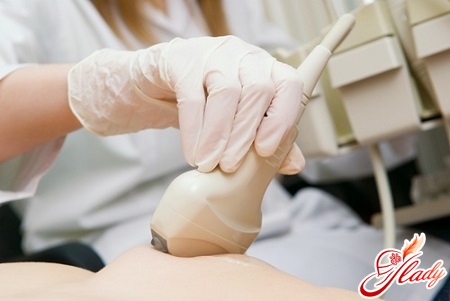
Unfortunately, gynecological diseases inwomen are not a rare case in the rhythm of modern life. Bad ecology, malnutrition and stress reduce our immunity, which is often the cause of many diseases of the female sexual sphere. However, there are also such diseases that are hereditarily acquired.
Gynecological diseases and their causes
Gynecological diseases are diseasesfemale sexual system, manifested by a variety of symptoms and signs. However, among them the most common symptoms are observed, which are observed in most diseases of the gynecological sphere. Gynecological problems in women are quite common. At the same time, the number of women with complaints of diseases of the reproductive organs is increasing significantly every year. This is due to various factors of both the internal and external environment of the female body. All causes of gynecological diseases are classified conditionally on internal and external. External factors include:
- frequent or periodic, but quite strong stress reactions to external stimuli;
- The deteriorating ecological situation, which is observed in large cities;
- early onset of sexual activity;
- frequent change of sexual partners;
- non-compliance with hygiene rules and, as a result, the frequent development of infectious diseases;
- infectious diseases as a risk of symptoms of gynecological disease;
- uncontrolled and frequent administration of antibiotics.
Internal factors include:
- pathology of development of female genital organs, for example, doubling of the vagina or presence of the duodenal uterus;
- wrong location of internal genitalia;
- hormonal diseases;
- spontaneous miscarriages or abortions, in which medical interventions were made, in particular, scraping of the uterine cavity.

Symptoms of gynecological diseases
All diseases of the gynecological profile are dividedon 3 groups for the reason provoked this or that disease. The first group includes diseases associated with the development of infection in the body of a woman. The second group includes the pathology of the endocrine system and the violation of the hormonal background of the woman's body. The third group includes diseases with the development of hyperplastic or dystrophic changes, the tumor process. There are symptoms that occur with any disease from each group. Symptoms of gynecological diseases are specific signs present in diseases of the genital area only. They include:
- leucorrhea - abnormal discharge of whitish color, as a rule, their amount depends on the activity of the process.
- bleeding that occurs outside of menstruation, withthis they can occur as in the middle of the menstrual cycle, so before or after it. Hemorrhages are very strong, but are smearing or completely insignificant. Bleeding can appear immediately after intercourse. All these symptoms must necessarily become a condition for compulsory visits to a gynecologist;
- itching or burning in the genital area. They can manifest themselves in varying degrees. Burning sensation is insignificant, giving only a small discomfort. And it can be intolerable and painful when a woman is doing herself serious damage, trying to remove the itch;
- unpleasant sensations at the sexual certificate or act, up to pains and impossibility because of it or this to be engaged in sex;
- the occurrence of discomfort or pain during urination;
- as a result of gynecological diseases, erosions or ulcers can be found on the female genitals in some cases, which indicates that she has gynecological diseases;
- Another symptom characteristic of diseases of the genitals is the pain in the lower abdomen, they are of a very diverse nature, for example, bursting, pulling or pressing;
- as a result of gynecological diseases, there may be a miscarriage or a tertiary infertility, numerous miscarriages.

Causes and signs of gynecological diseases in three groups
The first group of diseases caused by various infections is most often diagnosed as a result of the following reasons:
- STIs are sexually transmitted infections. A special place among them is gonorrhea, trichomoniasis, candidiasis, or thrush, chlamydia;
- diseases of the viral etiology that can cause the genital herpes virus, HIV, cytomegalovirus or human papillomavirus;
- diseases of purulent-inflammatory nature. There are often distinguished diseases: colpitis, endometritis, adnexitis, cervicitis, pelvitoperitonitis, vulvitis and other diseases.
Among the reasons that caused the diseasegroups, identify specific microorganisms that cause STIs, and nonspecific, where all other diseases are classified. Such diseases are transmitted both sexually and appear as a result of blood separation from other systems and organs. Symptoms of gynecological diseases of the first group are mainly complaints about the presence of leucorrhoea, purulent discharge from the genital tract, soreness in sexual intercourse and urination, itching and burning in the genital area, as well as the possibility of erosion and ulceration on the female genital organs. The development of inflammatory processes is facilitated by any infection, disease, abortion, childbirth, hypothermia, operative and diagnostic manipulations (scraping of the uterus, sounding of the uterus cavity, hysteroscopy, hydrotubation, hysterosalpingography, etc.), non-observance of personal hygiene, excessive intake of antibiotics. The presence of an intrauterine device (IUD) can also contribute to the spread of infection. When it is used, the risk of developing inflammatory processes increases 4-5 times. The same property, the spread of infection, and improper use of intravaginal tampons. The second group of gynecological diseases that result from various hormonal and endocrine disorders. Most symptoms include: menstrual irregularities, no monthly or amenorrhea, a decrease or increase in the menstrual cycle, menstrual cycles may become scarce or, on the contrary, may be bloody allocation outside of monthly. In addition, as a result of hormonal disorders, dysfunctional uterine bleeding may occur, that is, menstrual bleeding becomes acyclic and irregular. As a result of all this, the woman develops secondary infertility, which requires immediate treatment. However, whatever the change in the menstrual cycle, it is necessary to consult a gynecologist.  To the third group of gynecological diseasesinclude tumor processes. And it is not necessary that these processes are malignant. Cystic formations in the ovaries, and uterine myoma, and changes in the cervix, such as pseudo-erosion, erosion and ulcerous changes, also apply here. Among the signs in the third group of diseases, women most often report soreness during intercourse or bleeding from the genital tract after intimate intimacy, bleeding not associated with menstruation. However, despite the specific symptoms of gynecological diseases, there are also those who either do not show themselves for a long time or signs are so unspecific that a woman can be treated for a long time not from a gynecological disease. Treatment of diseases of the gynecological sphere is a complicated and responsible business. In no case is it advisable to engage in self-medication, as this can lead to unpredictable results and only complicate the current situation. As a result of illiterate treatment, endometritis, infertility or cancer can develop. Any gynecological diseases and their symptoms require an early referral to the doctor for the purpose of establishing the correct diagnosis and prescribing the necessary treatment. This will make it possible to restore the functions of the sexual sphere and to receive from intimate intimacy only pleasure without fear of development of bleeding or painful sensations. That's why you need to undergo medical preventive examinations from an obstetrician-gynecologist. Usually it is enough to pass and pass all necessary tests 1-2 times a year, depending on the presence of complaints and well-being. If a woman has gynecological problems, then she needs to visit the gynecologist more often, by an individual arrangement with him.
To the third group of gynecological diseasesinclude tumor processes. And it is not necessary that these processes are malignant. Cystic formations in the ovaries, and uterine myoma, and changes in the cervix, such as pseudo-erosion, erosion and ulcerous changes, also apply here. Among the signs in the third group of diseases, women most often report soreness during intercourse or bleeding from the genital tract after intimate intimacy, bleeding not associated with menstruation. However, despite the specific symptoms of gynecological diseases, there are also those who either do not show themselves for a long time or signs are so unspecific that a woman can be treated for a long time not from a gynecological disease. Treatment of diseases of the gynecological sphere is a complicated and responsible business. In no case is it advisable to engage in self-medication, as this can lead to unpredictable results and only complicate the current situation. As a result of illiterate treatment, endometritis, infertility or cancer can develop. Any gynecological diseases and their symptoms require an early referral to the doctor for the purpose of establishing the correct diagnosis and prescribing the necessary treatment. This will make it possible to restore the functions of the sexual sphere and to receive from intimate intimacy only pleasure without fear of development of bleeding or painful sensations. That's why you need to undergo medical preventive examinations from an obstetrician-gynecologist. Usually it is enough to pass and pass all necessary tests 1-2 times a year, depending on the presence of complaints and well-being. If a woman has gynecological problems, then she needs to visit the gynecologist more often, by an individual arrangement with him.









